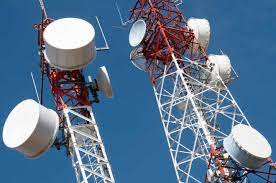
A significant proposal, the Telecommunications Bill 2023, introduced in the Lok Sabha by Communications Minister Ashwini Vaishnaw, outlines provisions enabling the Central Government to assume temporary control of telecommunication networks in situations concerning public safety or during emergencies.
The draft law specifically mentions that during public emergencies or for public safety, the Centre or State Government, or an authorized officer thereof, may take temporary possession of any telecommunication service or network. This introduction comes amidst Opposition protests urging Union Home Minister Amit Shah’s statement on last week’s breach in Parliament security.
The bill emphasizes that press messages from accredited correspondents to the Central or State Governments will not be intercepted or detained unless transmission is prohibited under specific clauses concerning national security.
Moreover, the proposed law allows the government, in the interest of public safety and national integrity, to direct message interception between individuals and suspend telecommunication networks if necessary.
Highlighting penalties for unlawful message interception, the bill suggests imprisonment of up to three years, a fine of up to ₹2 crore, or both. It also advocates for the establishment of a Telecom Disputes Settlement and Appellate Tribunal.
Seeking to replace archaic laws such as the Indian Telegraph Act 1885, Indian Wireless Telegraphy Act 1933, and Telegraph Wires (Unlawful Possession) Act, 1950, the government cites the need for a modernized legal framework amid rapid advancements in communication technology.
However, concerns have been raised regarding potential privacy infringements. BSP MP Ritesh Pandey, citing the Supreme Court’s right to privacy judgment, expressed apprehension over the law’s implications. He highlighted the risk of individual data linkage, particularly concerning communities with limited tech awareness.
Pandey, addressing Lok Sabha before adjournment due to Opposition protests, urged a thorough examination of the law’s ramifications. He emphasized the necessity of safeguarding privacy rights, hoping for a comprehensive review before the bill’s implementation.
The proposed Telecommunications Bill 2023 introduces pivotal changes in governing telecommunication networks, prompting scrutiny over its implications on privacy rights and the balance between public safety and individual freedoms.
Sources By Agencies




